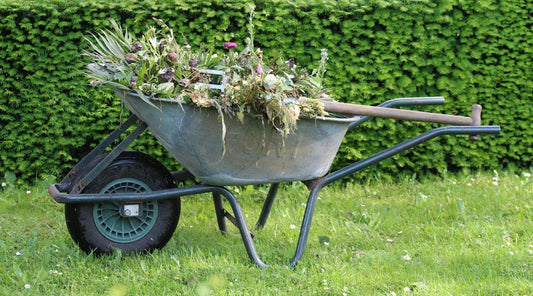Identifying Common Summer Pests
The first step in effective pest control is identifying the culprits. Here are some common summer pests to watch out for:
- Aphids: Tiny, pear-shaped insects that cluster on new growth. They can be green, black, red, or white and often cause distorted leaves and sticky residue.
- Spider Mites: Minuscule pests that produce fine webbing on plants. They suck sap from leaves, leading to speckled, yellowing foliage.
- Caterpillars: Including tomato hornworms and cabbage loopers, caterpillars chew large holes in leaves and fruits.
- Whiteflies: Small, white-winged insects that flutter up when plants are disturbed. They suck plant juices, causing leaves to yellow and wilt.
- Japanese Beetles: Metallic green and copper beetles that skeletonize leaves by eating the tissue between the veins.
- Squash Bugs: Gray or brown bugs that feed on squash and pumpkin plants, causing leaves to wilt and die.
Natural Pest Control Methods
Natural pest control is not only environmentally friendly but also helps maintain the balance of your garden ecosystem. Here are some effective natural methods:- Beneficial Insects: Introduce ladybugs, lacewings, and parasitic wasps to your garden. These insects prey on common pests like aphids and caterpillars.
- Neem Oil: This organic oil disrupts the life cycle of many pests, including aphids, whiteflies, and spider mites. Mix it with water and a few drops of dish soap, then spray it on affected plants.
- Homemade Sprays: Create a garlic or chili pepper spray by blending the ingredients with water. These sprays repel many insects. For example, a garlic spray can deter aphids, while a chili pepper spray can keep caterpillars at bay.
Companion Planting for Pest Prevention

- Marigolds and Tomatoes: Marigolds release a scent that repels aphids, whiteflies, and nematodes. Plant them alongside tomatoes for a pest-free garden.
- Basil and Peppers: Basil repels mosquitoes and flies while enhancing the flavor of peppers. Plant them together for a double benefit.
- Nasturtiums and Cucumbers: Nasturtiums deter aphids, squash bugs, and cucumber beetles. Their bright flowers also add a splash of color to your garden.
- Chives and Carrots: Chives repel carrot flies and aphids. Plant them near your carrot beds to keep these pests away.
Physical Barriers and Traps
Sometimes, the simplest solutions are the most effective. Physical barriers and traps can prevent pests from reaching your plants:- Row Covers: Lightweight fabrics that cover your plants, preventing pests from laying eggs or feeding on leaves. They’re especially useful for protecting young seedlings.
- Netting: Fine mesh netting can keep larger pests like birds and rabbits away from your crops without obstructing sunlight and rain.
- Sticky Traps: Bright yellow sticky traps attract and capture flying insects like whiteflies and aphids. Place them around your garden to reduce pest populations.
- Beer Traps: Slugs and snails are attracted to the yeast in beer. Bury shallow containers filled with beer near affected plants. The pests will crawl in and drown.
Maintaining Garden Health to Deter Pests
A healthy garden is naturally more resistant to pests. Here’s how to maintain robust plant health:- Healthy Soil: Enrich your soil with organic matter like compost and mulch. Healthy soil supports strong plant growth and resilience against pests.
- Proper Watering: Water deeply and less frequently to encourage deep root growth. Avoid overhead watering, which can promote fungal diseases.
- Crop Rotation: Rotate crops each year to prevent pest buildup in the soil. For example, avoid planting tomatoes in the same spot year after year to reduce the risk of soil-borne pests and diseases.
When to Use Chemical Solutions
While natural methods are preferable, there are times when chemical solutions might be necessary. Use these as a last resort and follow these guidelines:- Targeted Application: Apply pesticides only to affected areas and avoid broad-spectrum chemicals that kill beneficial insects.
- Follow Instructions: Always read and follow the label instructions carefully to ensure safe and effective use.
- Integrated Pest Management (IPM): Combine chemical treatments with natural methods for a balanced approach. Use chemicals to knock down severe infestations, then follow up with natural controls to prevent recurrence.
Conclusion
Keeping summer pests at bay is essential for a thriving garden. By identifying common pests, using natural control methods, practicing companion planting, employing physical barriers, and maintaining garden health, you can protect your plants effectively. Reserve chemical solutions for severe infestations and use them responsibly. With these strategies, you can enjoy a bountiful, pest-free garden all summer long. Happy gardening!
Resources:
Get ahead of weeds with the Terra Weeder.
Wipe out dandelions with the Rocket Weeder.
Get rodents in their burrows with the Gopher Bait Applicator.






